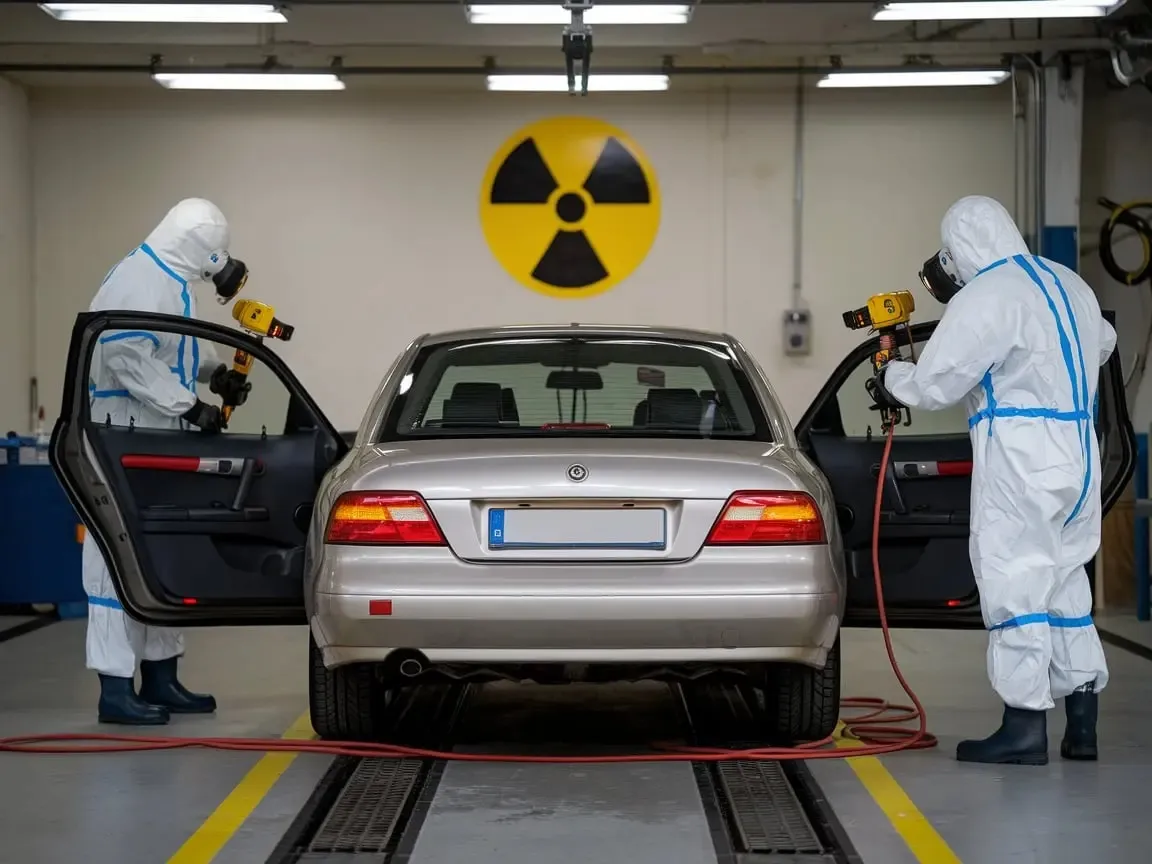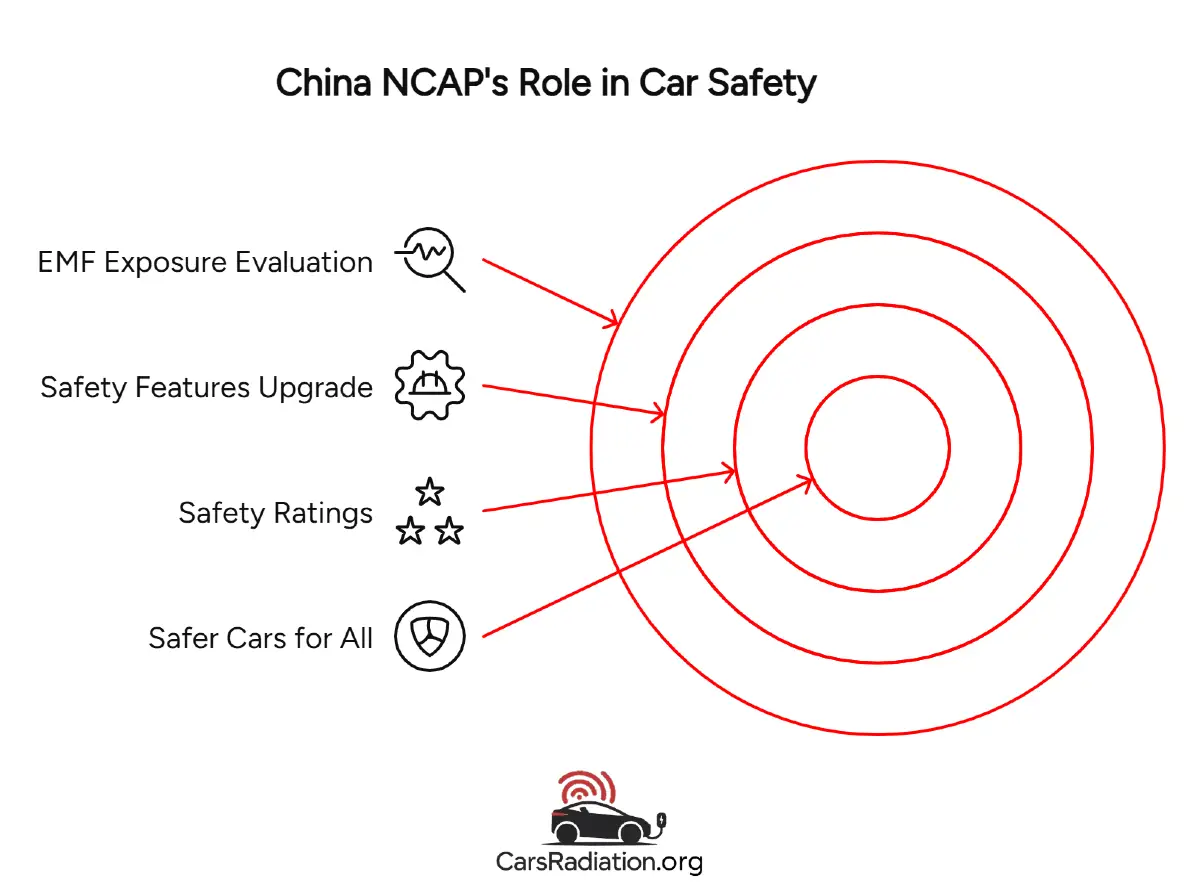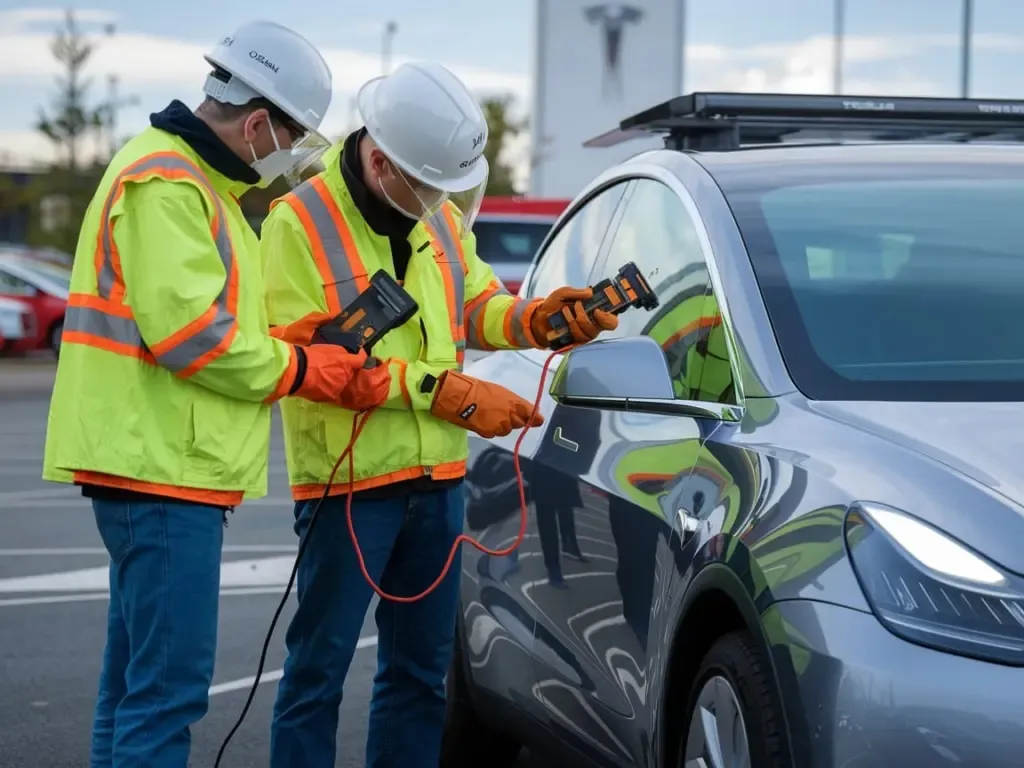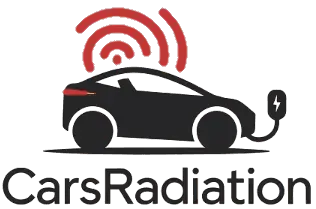Are There Benchmarks and Grading Systems for Car Radiation Health Risks?

Electric and hybrid cars rely on powerful electrical systems to function. These systems (motors, inverters, batteries, and wiring) generate electromagnetic fields (EMFs). As the number of these vehicles grows, so does concern about the possible health effects of long-term EMF exposure inside the cabin.
Recognizing this concern, organizations have begun to set up measurement standards and grading systems. One example is the China New Car Assessment Program (C-NCAP), which introduced a dedicated protocol to assess EMF levels inside vehicles and to grade them accordingly. The aim is to give consumers clear, comparable data when choosing a car.
Health Implications of EMF Exposure
EMF exposure has been studied for decades. According to the National Cancer Institute, some studies have explored a potential link between EMF and health risks like cancer. The International Agency for Research on Cancer (IARC), a part of the World Health Organization, has classified low-frequency electromagnetic fields as “possibly carcinogenic to humans” (Group 2B). This classification is based on limited evidence, and further research is still ongoing to determine exact risks.
So, Are There Benchmarks to Measure EMFs in Cars?
Yes. Standards exist and are already in use. C-NCAP, for example, has defined methods to test and grade vehicles based on their EMF emissions. These benchmarks help make the risk more visible, allowing buyers to factor in cabin EMF exposure as part of the overall safety profile of the car.
China NCAP: Overview and Implications
China NCAP (New Car Assessment Program) is the national vehicle safety evaluation framework. Launched in 2006, it provides standardized assessments of how well passenger vehicles protect occupants in the event of a crash. It also serves as a tool to encourage domestic manufacturers to meet evolving safety expectations. Over time, this program has contributed significantly to raising the baseline safety of vehicles sold in China.
Through structured testing and public reporting, China NCAP assigns safety ratings to vehicle models. These ratings help consumers make informed choices and incentivize manufacturers to implement improvements. As the program updates its criteria to reflect technological progress, it continues to play a part in vehicle development and public safety needs.

Why Should I Care?
China NCAP’s rating system brings useful progress. It measures the electromagnetic fields (EMFs) inside cars and assigns a safety grade based on the levels detected.
This helps buyers avoid models with higher EMF exposure and encourages manufacturers to improve their internal designs.
Vehicles that receive better China NCAP scores typically show stronger shielding and smarter cable routing to reduce radiation inside the cabin. These steps are especially important for families and for people who spend many hours in their cars.
A Move in the Right Direction
 The introduction of EMF benchmarks by China NCAP is a meaningful first step. While not perfect, it sets a foundation that can be built upon. Applying similar standards globally could allow for broader compliance and greater protection for passengers across different markets.
The introduction of EMF benchmarks by China NCAP is a meaningful first step. While not perfect, it sets a foundation that can be built upon. Applying similar standards globally could allow for broader compliance and greater protection for passengers across different markets.
As measurement technologies improve, it is likely that more precise and practical methods for assessing magnetic field exposure in cars will emerge. These could eventually replace today’s benchmarks with solutions that offer better accuracy and usability.
Setting minimum requirements is helpful, but ongoing expansion and refinement are important. This guarantees that progress in automotive design does not come at the expense of passenger health.
With more research, updated regulations, and wider adoption of standards like China NCAP, vehicles will become both smarter and safer. In the meantime, taking reasonable steps to reduce magnetic field exposure remains a sound and necessary precaution.

